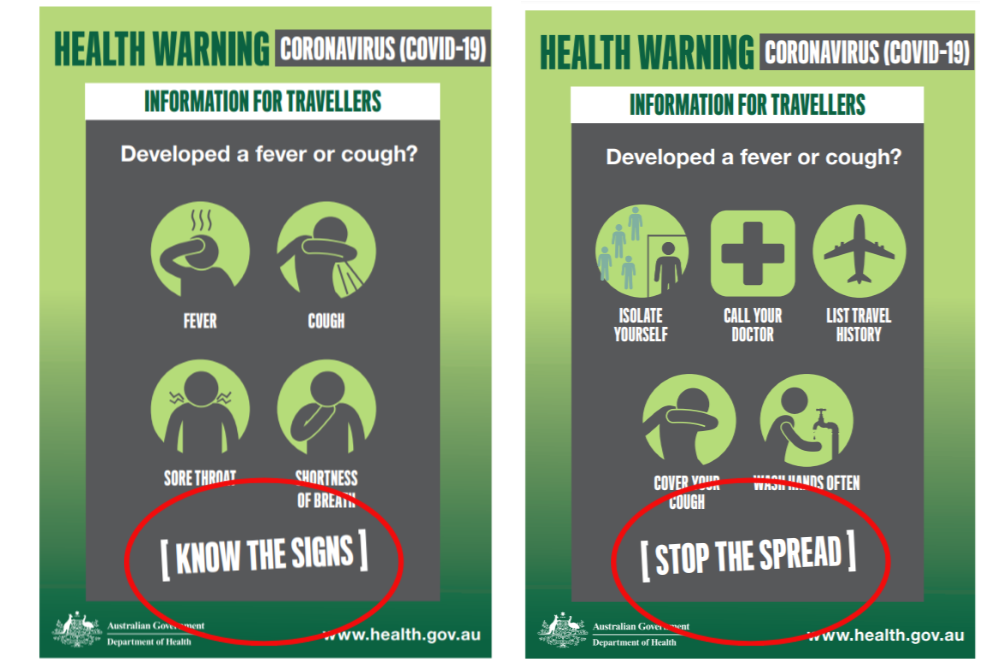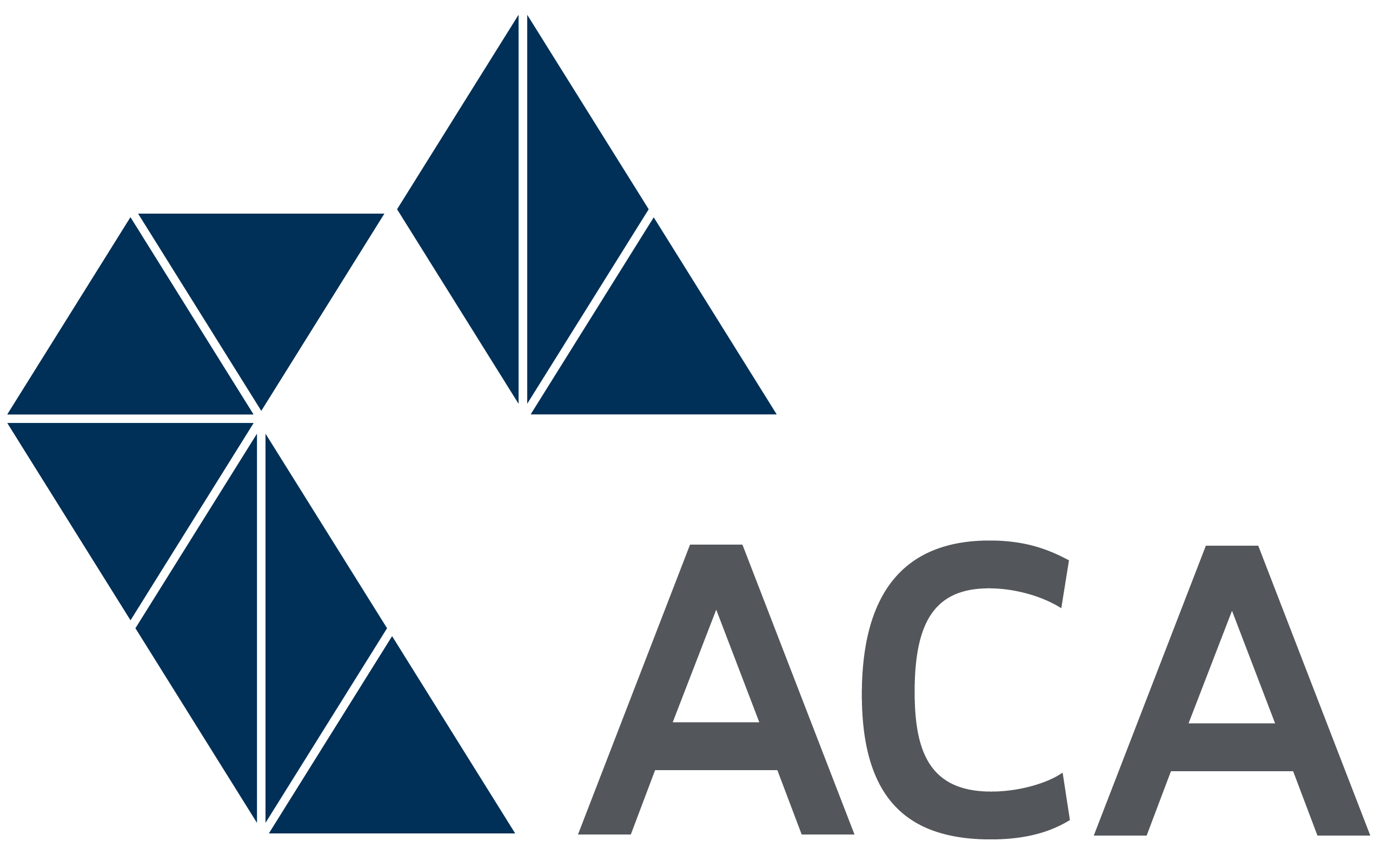
In the context of the Coronavirus, ACA has continued to receive calls from concerned members about how the various aspects may affects the day-to-day running of services.
Below is an update along with some FAQ's which we hope you find useful and informative.
Please note that our Coronavirus webpage is now the central hub of all relevant updates.
|
What is the Coronavirus (COVID-19)? The Coronavirus is a virus that can cause illnesses that can range from the common cold to more severe diseases. Symptoms include:
Stopping the spread of the Coronavirus - when should I exclude children or staff? As is always the case, sick educators and employees need to avoid coming to the centre. They should also obtain be medical certificates or advice from medical professionals regarding isolation or time away from work. In terms of recent international travel, on 15th March the Australian Government updated their self-isolate guidanceAs of midnight Sunday 15th March people returning to Australia from any international travel will be required to self-isolate for 14 days.
Please refer to the isolation guidelines that relate to each country on the Department of Health webpage here. |
|
If you suspect a child or staff member at your service has Coronavirus or has come in contact with someone diagnosed with it: If you close your service, either voluntarily, or as advised by your local Public Health unit: If you require general advice you can call the National Coronavirus Hotline: 1800 020 080. |
|
How will I know if I need to shut down? The Federal or relevant State/Territory Department of Health will advise you of the need for partial or full closure. At this point in time there has not been any forced closures. There have been a handful of children advised to self-isolate pending the outcome of their tests.We will soon provide some communication templates for your families should there be a need to advise them of closure. We will also have a ‘pandemic response guide’ for your centre, taking you through step-by-step the things you need to do should this happen. |
|
How on earth do I remain financially viable if I am forced to close? This is on the mind of every single one of our members. Financial support packages aside, you will need to get in touch with your lenders, landlords, creditors. We know of many financial institutions who are allowing those adversely affected to take a ‘mortgage break’, or redraw loans, or refinance in order to stay afloat. We also know that some landlords are cognisant of the issue of reduced income and may be willing to scale back rental payments. Is there any funding out there to help us? CCCF Special Circumstances funding can help cover business costs, including wages and other costs to ensure services continue to operate even when some families have stopped using child care or cut back on hours (e.g. cancelled or changed enrolment details). Additionally, the Australian Government has recently announced a Boosting Cashflow For Employers initiative, which will provide up to $25,000 back to business, with a minimum payment of $2,000 for eligible businesses. The payment will provide temporary cash flow support to small and medium businesses that employ staff, and will be tax free. |
| Adapting menus to accomodate the food shortages from grocery stockpiling We've created a helpful video with menu hacks, ingredient swaps and other life-saving tips! You can view it here. The video, created by UnYucky Families - a food and communication consultancy for educators and families, aims to help you to continue serving healthy, delicious meals regardless of the current food shortages. ACA has already emailed our members a copy of the accompanying guidance booklet to go with this presentation, which includes a transcript of the video & useful resource links. |
What should I tell families?
Some of your families may express their concern about their child’s health and safety in your service.
We recommend that you take a proactive approach and send your families a notice to reassure them about the health status at your centre (ie. whether there have been any suspected cases or exclusions) and also let them know that you are following the advice of the Federal and State Governments.
You can may wish to refer your families to the DESE information for families and for early learning services here.
We also recommend Health Direct's webpage on the Coronavirus for parents considering school or childcare exlusions - it is updated regularly and offers useful advice to help decide if their child should be kept home or not. It also has a useful Coronavirus Symptom Checker.
Please note that this advice may change at any stage, so please continue to check for the latest updates.
Who should I talk to if excluding children?
If you are in the position of excluding children who have been in attendance at your early learning service and subsequently excluded as a result of falling into one of the above categories, we suggest you contact your state Department of Health.We suggest you also contact the early childhood unit within your education department – or notify via NQAITS.
You should also contact your insurer to talk about your policy and what is included in your cover, and we would appreciate it if you let our office know.
If you are forced to close your service you should also contact the CCS help desk (
Should I be charging parents if their child is excluded or they choose to stay home?
This is a decision to be made by each individual centre.
What are the CCS implications?
CCS is payable for allowable absences. If a child has exceeded the 42 days of allowable absences, then no CCS is payable and the family is liable for the full fee.
What about additional absences of children?
If a family has reached their 42 allowable absences in this financial year, additional absences can be applied for.
In instances where the child is ill, a medical certificate will be provided. Once the centre has a copy if this they can adjust software settings to have additional allowable absences (ie have CCS applied for those days).
In instances where the child is not ill, families should visit their local GP and get a certificate stating that the child has been excluded as per the Department of Health guidelines. The centre should take a copy of this certificate, and can then adjust software settings to have additional allowable absences (ie. have CCS applied for those days)
What if a child is excluded and hasn’t actually started their first formal day of care?
The CCS does not apply until the child physically start attending the centre.
It is up to the service provider whether they will charge the family full fees during this time.
We appreciate the awkwardness of this situation - whilst legislation has been passed which will eventually allow some absences prior to commencement to have CCS applied, these changes have not yet come into effect.
This also applies for their final day of attendance (eg. if they attended the centre prior to school starting) and is covered under ‘cessation of care’ – ie. CCS is only paid until the final day of attendance.
Does this apply for Out of School Hours Care (OSHC)?
All of these issues need to be considered in the OSHC environment – and we encourage centres to speak with their local schools regarding exclusions.
Payment & Leave: How do I go about paying staff in these instances?
The following workplace relations guidance has been provided by ACA's legal partner - Australian Business Lawyers & Advisors (ABLA).
The health and safety of staff and those they come into contact with must be an employer’s top priority. This should dictate the approach any employer takes to responding to notification from employees that they may have come into contact with coronavirus.
It is also prudent to:
• Direct employees to declare any upcoming or recent travel (including areas through which the employees have transited) so that employers can assess the prospect of risks to health and safety arising from staff movements generally; and
• provide employees with simple information regarding how they can maintain good hygiene. Helpful advice can be obtained from the World Health Organisation here.
If an employee tells you that they:
• Are feeling unwell and may be suffering flu-like symptoms;
• have been in contact with someone who has or may have been in contact with someone who has Coronavirus; or
• have travelled to an area affected by the Coronavirus (such as China),
they should be directed to follow the Australian Government advice and seek medical advice immediately.
Availability of personal leave
If an employee informs you that they have contracted the Coronavirus or need to care for a member of their immediate family or household who has contracted Coronavirus, then they will be entitled to take personal leave under the NES.
However, personal/carers leave is not available where an employee has come into contact with a person who has Coronavirus or where an employee returns from travel to a high risk area as outlined above, but is not yet sick themselves.
This is because, to qualify for personal leave, an employee must be “not fit for work” because of an illness or injury affecting them. It is unlikely that this pre-requisite will be met by persons who are not yet diagnosed as ill but merely require isolation.
How should an employer pay employees who are isolated, but not diagnosed with Coronavirus?
Given the likely inability to provide personal leave in cases where employees require isolation but have not been positively diagnosed, in most cases, employers should look to utilise practical solutions to address the employee’s absence.
By way of example:
• In some cases, employers could permit the employee to work from home. This ensures a level of productivity is retained and will allow the employee to continue to be paid wages during the isolation period; or
• where working from home is unavailable, employers may wish to provide discretionary paid leave to employees so that they do not suffer from a loss of pay during the isolation period.
As an employer it is worthwhile considering whether discretionary options such as those above can be accommodated. Employers will need to balance the short-term cost associated with these measures against the longer-term benefits that may arise.
What if I am unwilling or unable to make payments to an employee who needs to be isolated (but is not diagnosed with Coronavirus) during this period?
For some businesses, it might not be feasible to pay employees who are required to self-isolate.
If an employer is unwilling or unable to pay employees whilst in isolation and an employee maintains that they are able to work, then employers face a difficult scenario: the employee says they are fit to work, but the employer has concerns that the employee is not fit to work without posing unacceptable safety risks to the workforce.
The best means of resolving this impasse is to direct the relevant employee to undergo testing if testing is available.
Once the test is undertaken, if the employee is cleared, they are able to return to work (best practice would dictate the employer pays the employee for the relevant period). If the employee tests positive, then they can be permitted to take personal leave for the duration of their absence.
What if testing is unavailable for employees in isolation?
It is uncontroversial that:
• It is an inherent requirement of any employment contract that employees are required to carry out their employment without endangering the safety of other persons; and
• in order to be paid for their service, employees need to be “ready, willing and able” to work.
These principles will govern an employer’s approach to employees who are told to isolate in circumstances where testing is unavailable (or refused by the employee).
Broadly speaking, two scenarios are likely to arise:
• Firstly, in some cases, an employee may have had levels of contact with persons exposed to Coronavirus which means the risk to safety presented by the employee’s presence at work is materially greater than other employees. By way of example, if an employee has just returned from mainland China or has been living with a person who has contracted Coronavirus, the employee will likely present significantly greater risks to the workforce than most other workers.
• In other cases, an employee might have had a level of contact that causes an employer some anxiety but not material concern. By way of example, the employee’s child might have attended a school where there was a Coronavirus diagnosis or the employee may have returned from travel to an area designated by the Australian Government’s health advice as ‘moderate risk’. Whilst there is some risk associated with contact with the relevant employee, the risk might not be materially greater than that posed by other workers who have been to supermarkets, gone to a football match, etc.
In the second scenario, it is unlikely that an employer will have a legitimate basis to direct an employee to stay away from work without pay. Rather, if the employer is directing the employee to remain away from work, the employer will need to pay the employee for the relevant period.
In the first scenario, a level of debate is likely to arise. However, provided the employer can demonstrate the relevant employee poses a sufficiently material risk to health and safety that cannot be mitigated, there is a reasonable basis for the employer to contend that the employee must stay away from work on unpaid leave (or annual leave if requested) until such time as the material risk dissipates (according to current Australian Government advice, this is likely to be a period of 14 days from possible exposure). This is because the employee is unable to presently work without posing unacceptable risks to health and safety.
What about casual employees?
Casual employees are not entitled to sick leave. This means that a casual employee who is diagnosed with Coronavirus may be required to refrain from presenting to work without additional payments.
Furthermore, where shifts to casual employees are reduced either on account of business downturn or because the employee has been required to isolate (due to contact or recent travel), the employees will not be entitled to payment during this period.
Returning to work
If an employee does report to you that they have had, or believe they may have been exposed to the coronavirus, we strongly recommend that, before permitting the employee to return to work, you obtain a medical certificate from that employee certifying that they do not have the coronavirus and they are fit to return to work.
Where can I get more information?
Please refer to the Australian Government information for families and for early learning services here along with Health Direct's webpage here.
You can read the latest health statements on the coronavirus from the Department of Health here.
The Fair Work Ombudsman has produced a webpage about the coronavirus and Australian workplace laws here.
The government has produced some "Know the signs" and "Stop the spread" posters here, which can be put up as a reminder to families and your team of staff.
Finally if you have any unanswered queries, you may wish to contact your ACA state body.
We thank you for your patience and support in dealing with this ever-changing situation.
Please rest assured that ACA is engaging daily with the Australian Goverment about this important issue and we will keep you infomred as updates come to hand.







